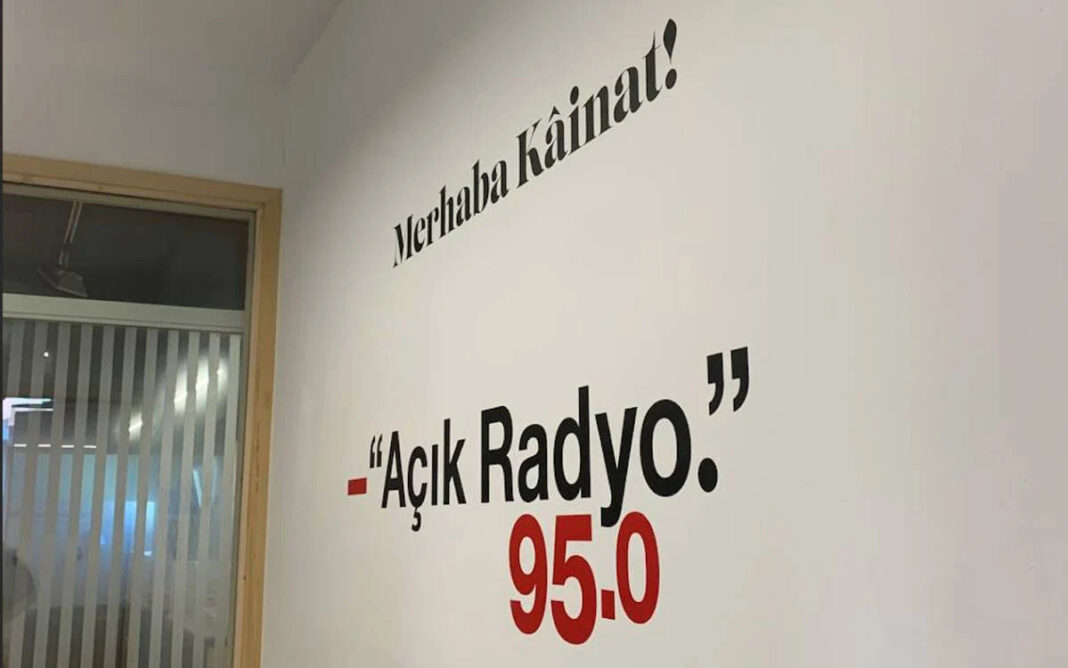The International Press Institute (IPI) and a number of press freedom organizations have condemned a decision by Turkish authorities to revoke the broadcasting license of independent radio station Açık Radyo and called on them to reinstate the license in line with their obligation to protect media freedom.
Turkey’s broadcasting and streaming regulator, the Radio and Television Supreme Council (RTÜK), last week cancelled the broadcasting license of Açık Radyo (Open Radio) due to a reference to “genocide” in the mass killing of Armenians in the final days of the Ottoman Empire.
The development has caused disappointment and anger among the radio station’s listeners as well as journalists and rights activists for constituting an act of “censorship.”
“We call on the authorities in Turkey to uphold their obligations to protect press freedom and freedom of expression in line with the Turkish Constitution and international human rights law, and to reinstate Açık Radyo’s license. Media outlets in Turkey must be free to enable debate on issues of public interest without fear of sanctions,” the press organizations said in their joint petition.
In addition to IPI, international press and rights groups such as ARTICLE 19, the Coalition For Women In Journalism (CFWIJ), the Committee to Protect Journalists (CPJ), the European Centre for Press and Media Freedom (ECPMF), the Foreign Media Association Turkey (FMA Turkey), Freedom House and PEN International signed the petition.
According to an announcement from RTÜK member İlhan Taşçı on July 3, RTÜK revoked Açık Radyo’s license for “refusing to comply” with a five-day broadcasting suspension that RTÜK ordered on May 22 as punishment for hosting a guest who allegedly “incited hatred and hostility” by referring to the mass killings of Armenians as “genocide” during a broadcast on April 24, when the mass killings of Armenians are remembered.
Armenians say — supported by historians and scholars — that 1.5 million of their people died in a genocide committed under the Ottoman Empire during World War I.
Turkey accepts that both Armenians and Turks died in huge numbers as Ottoman forces fought czarist Russia but vehemently denies a deliberate policy of genocide and notes that the term had not been legally defined at the time.
The radio station’s lawyers had filed an appeal with an Ankara administrative court asking it to quash the suspension order. But, without waiting for the court to issue its decision on the appeal, RTÜK rescinded the station’s license for non-compliance.
The press and rights groups said the remarks that led to the revocation of Açık Radyo’s license are clearly covered by the right to freedom of expression as guaranteed by international human rights law, including the European Convention on Human Rights.
“We urgently call on RTÜK to swiftly reinstate Açık Radyo’s license,” they said, while also calling on the watchdog to act according to its mandate and secure freedom of expression and media pluralism in the country instead of censoring critical and independent media.
Açık Radyo, a regional radio station established in 1995, has been broadcasting from İstanbul since then and is praised for its quality content and diverse programs.
It is common for pro-opposition or independent news stations in Turkey to face restrictions on their broadcasting through sanctions imposed by RTÜK, whose board members are appointed in proportion to the number of seats held by political parties in parliament, meaning that the ruling Justice and Development Party (AKP) currently dominates the agency.
After a failed coup in July 2016, the Turkish government summarily shut down nearly 200 media outlets due to their alleged links to terrorism or their alleged involvement in terrorist propaganda. The post-coup crackdown also included the detention of dozens of journalists, which briefly made Turkey the second worst jailer of journalists in the world after China.
Turkey, which has been suffering from a poor record of freedom of the press for years, ranks 158th among 180 countries in RSF’s World Press Freedom Index published on May 3 on the occasion of the World Press Freedom Day.



